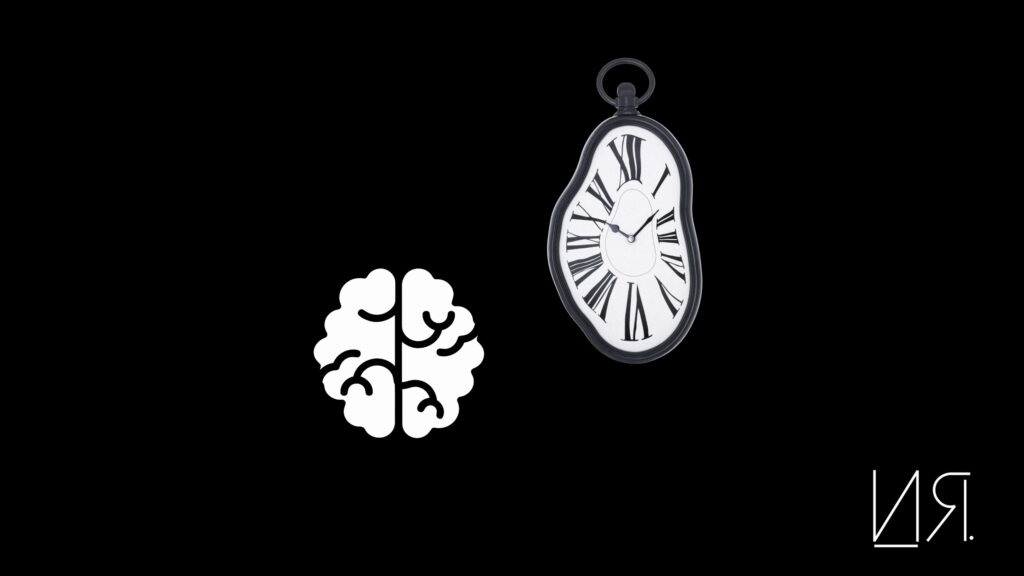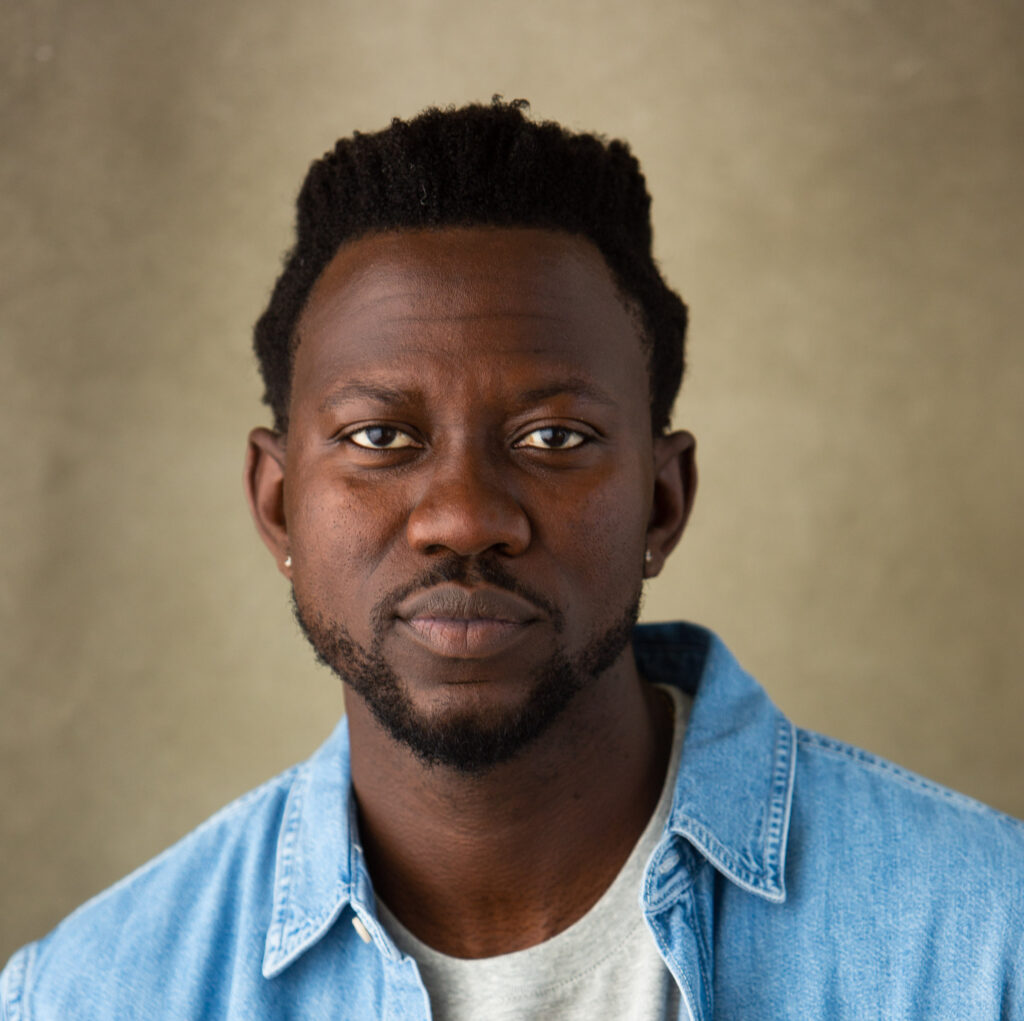My brother recently sent me a video of him in an autonomous vehicle driving down the streets of San Francisco
No big deal, right?
Well, a car moving, changing directions, stopping – all on its one is not something I envisioned 15 years ago.
Although I know people that work at these companies, seeing an autonomous vehicle in action opened my mind as I lay down on the couch casually watching this video on my phone.
The future that I wrote about in my dystopian novel – Toffy’s Divide (in the year of 2049) – is here already.
No need to travel to the future again.
Zooming off
Just like that autonomous vehicle, most of us are on auto-cruise.
Our brains do all the work, traveling between time (for survival) while we are slumped in the present.
We fixate on external clock-time and dismiss our internal subjective time.
Fellow human. Here you go again!
Focusing on building external machines, disregarding the huge machine that’s in your cranium.
A lot of us have taken our brain power for granted. We trivialize the amazing processing machine that it is. It controls our perception of time, building on memory to anticipate the future.
What happens when your mind travels into the future?
Do you dream big or do you consistently find yourself in a scorched land filled with mines of anxiety?
Without the knowledge of the power of your brain and how it controls your perception of time and experiences, you can miss out on life itself.
You begin to wonder why life feels mundane as you follow the rigidity of clock-time.
Sccccrrrr….
I can hear the wheels screeching from a distance.
“Hold up. Hold up…..You’re not telling me anything new. I know the brain can remember stuff and go into the future. But, how does that help me? NOW.”
I’m just here to keep the wheels turning and remind you that:
“Your brain is a powerful time machine.”
With billions of neurons, it is one of the most powerful machines in the world – and there are 7 billion brains roaming around on this planet.
It consumes 20% of your body’s energy budget and only accounts for 2% of its mass.
The ability to travel through time is one of the staples of human advancements. It’s helped us build technologies, pass on messages, outlive ourselves, and produce art.
Mental time travel is what allows us to build companies and things like autonomous vehicles.
Don’t sleep on yourself.
Your brain is the most advanced time machine that you’ll ever come across.
Your brain – the time machine:
Understanding the power of your brain and the time machine that it is will help you perceive time differently.
You’ll start breaking away from the rigidity of clock-time and all the things society has ‘assigned’ to you.
You’ll get in sync with your natural rhythm and take a more active approach to experience life’s flow on your own terms.
Here are 5 things to think about as you get in tune with your personal time machine.
1. Your Brain Anticipates
Time travel is possible.
You have probably been back to the future several times today already.
Who needs a time machine when you already have one in your head.
Back then, when I heard, “use your brain”, I defaulted to thinking about calculations and just remembering stuff.
I hardly thought about using it for envisioning.
But everyday, unlike any other animal, we are constantly in our own science fiction movie. Traveling to the future and back in time, while pretending to listen to the person talking to you in the present.
Respect your brain for the time machine that it is. It’s built to help you interact with time.
It does this in four ways:
- As a machine that remembers the past to predict the future.
- It tells and projects into time.
For instance, when a hunter throws a spear at a moving target, they have to predict where the target will be in the future to hit it. The brain is a spacetime predictor. - It creates a sense of time.
Even though time is not a tangible matter like the molecules that produce sound or smell, our brain senses the passage of time. Distorted or not, it is this passage of time that has baffled physicists and philosophers for centuries.
- It allows us to do mental time travel. Going back and forth in time. Not only to predict the future but also to transform and create it.
When it comes down to the base operating function, your brain is an anticipation machine, traveling through time to help you predict the future and survive.
It can also help you create the future.
2. Your Neurons Partner
Your neurons build partnerships.
They are the coordinators of time.
Over the last 7 years I’ve helped global companies enter and expand their business in Africa.
The most important thing for success in the diverse and vast continent is finding the right partnerships.
That’s the same thing your brain is built on – neural partnerships.
The brain is a highly developed machine with 100 billion neurons interacting to help us survive in a harsh and ever-changing environment.
These neurons partner with one another through synapses. The synaptic firings between neurons create a cause and effect behavior.
A presynaptic neuron kicks things off to a postsynaptic neuron that is triggered afterwards. The brain, like an algorithm, has learning rules that determine what is fired before or after.
One of those learning rules is called Synaptic-time-dependent-plasticity (STDP).
Are you down with STDP
Yeah! You know me!
For instance if two neurons are connected and contained in a child’s brain and the child’s name is DEJI.
If one neuron fires at D, and the other fires for E. When he is called, the first one fires and triggers the other neuron. Over time, the first connection will be strengthened while the second firing withers away.
This is the basis of the cause and effect of what comes before the other in a small time scale.
These neural partnerships play a major role in the flow of time for us. It is trained to see things in an efficient and sequential order.
The neurons in your brain build complex partnerships that factor in your perception of the flow of time.
3. Your Time is Memory
Your experience in time depends on what you choose to remember.
When I hear the letters MMA, a shiver goes down my spine.
Oh No! I’m not talking about Mixed Martial Arts.
I’m talking about Murtala Mohammed Airport – the infamous Nigerian airport in Africa’s most populated city – Lagos.
Whenever I’m traveling out of MMA, I dread the long lines, the chaotic check-in process, and constant demands for a tip. Everything takes FOREVER in the moment.
By the time we finally get to our seats, we all look like we’ve been kicked in the head by Israel Adesanya.
Then we fly out of the country. If you happen to go on vacation, as you experience new things, time flies by fast in the moment.
Weeks later, back in Nigeria. As you recount the story, those 5 hours in MMA now seem like they went quick but your holiday experience now seems drawn out.
The opposite of what happened in the moment.
This is known as the holiday paradox.
It has to do with the two types of timing we deal with – prospective and retrospective timing.
Prospective timing is timing an activity from the current moment. For instance, timing an activity with a stopwatch.
Retrospective timing is looking back to figure out how much time has passed. For instance, when you are asked “how long has the power been out?”
Prospective timing is a temporal task, while retrospective timing really has nothing to do with time but more with memory.
We tend to remember novel things. So new and interesting events take up more space in our memory bank. They seem longer than memories of the mundane.
Your perception of time depends on the experiences that you remember. Stay observant.
4. Your Body Has Clocks
Throw your watch away – you have various clocks in your body.
When I used to optimize factories, people would come in shifts.
The night shift would come at 7PM to start “their day.”
Although they seemed to have more autonomy (no plant managers watching over their shoulders), I got a sense that switching to night shifts was not a great deal for them.
There are studies that show that when you are not in rhythm with your natural circadian cycle you develop a host of physiological issues.
We all have an internal clock deep in our cells that responds to light, temperature, and food availability.
It’s called the circadian rhythm.
A circadian rhythm or cycle, is a natural, internal process that regulates the sleep–wake cycle and repeats roughly every 24 hours.
There is a circadian rhythm that is linked to a nucleus below the hypothalamus (the smart control coordinating center) in your brain.
But this cycle does not only happen in the brain.
Individual cells, across your body, also have a circadian rhythm that anticipates the rising of the sun to maximize food production.
Oh, there’s more!
There is a gene called the period gene that regulates the production of protein that is also in sync with our circadian rhythm.
So many things going on in that body of yours.
Our bodies are filled with multiple internal clocks.
Pay attention to your internal clock. Make sure it is synced to live a healthier life.
5. Patterns of time
The intervals between things are as important as the things themselves.
Listening to one of my favorite musicians, Nas, say on his classic album Illmatic:
“My pen taps the paper then my brain’s blank
I see dark streets, hustlin’ brothers who keep the same rank”
With his pen, he used words to escape the harsh reality of his environment. That pen was a vehicle to express his thoughts traveling through time.
Just like how Nas’ music is filled with
rhythms and patterns,
words and pauses,
tones and silences,
Our brain uses these patterns to make sense of time.
Whether you’re sitting in a park or going down memory lane, it ain’t hard to tell when the next beat is going to drop in the groove.
Following the beat is a shared human trait we all have.
It shows our ability to predict the future.
We boop our heads not to match the current strike of the drum but to anticipate the future strike. Speech and music are activities that make use of our temporal functions.
The phoneme is the smallest unit of language.
Its use, combination, and variation is what creates words and sentences to create meaning.
The pauses and intervals between phonemes are very important to transfer the right meaning, emphasizing the importance of timing in speech, language, and music.
The patterns of time are as important to the brain as time is itself.
Final Thoughts
Your brain is a complex puzzle telling time.
Billions of neural connections have been built to use our memories to predict the future.
There is no centralized neural center that is responsible for telling time just like there isn’t a particular transistor in a computer that is responsible for processing bits.
The brain machine is all about memory and anticipation. Neurons build partnerships based on synaptic cause and effect, while our experience with time depends on what we choose to remember.
Your brain is not doing all the work though. There are several clocks within your body – encoded in your cells and your DNA. It’s the basis of the circadian rhythm.
Finally, the way we experience time depends on patterns that chop up time itself.
Be kind to yourself and get in tune with your natural rhythm.Your body already knows what time it is.
Your Truly,
Nifemi



